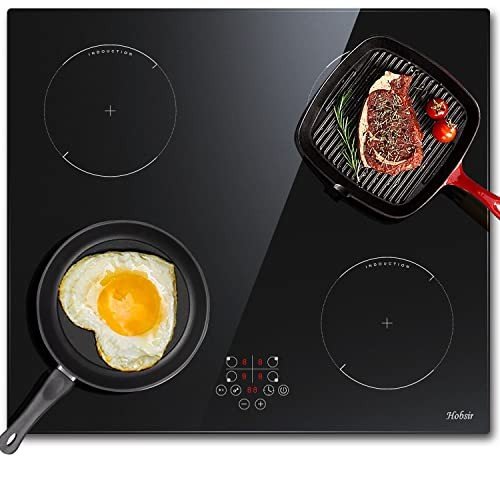5 Lessons You Can Learn From Cookers And Hobs
Understanding Cookers and Hobs: A Comprehensive Guide
Cooking is an important element of day-to-day life, and the advancement of kitchen home appliances plays a substantial role in how effectively and effectively people prepare their meals. Among these devices, cookers and hobs are two of the most vital instruments found in modern-day cooking areas. This post looks into the differences in between cookers and hobs, analyzes their numerous types, and uses insights on their functions, upkeep, and choice process.
What are Cookers and Hobs?
Cookers
Cookers are comprehensive kitchen home appliances created for cooking jobs, normally integrating an oven and a hob. They can be found in various setups and types, catering to diverse cooking requirements and preferences.
Hobs
Hobs, on the other hand, are more focused appliances mainly used for boiling, frying, and other stovetop cooking approaches. Oven And Hobs For Sale can be standalone systems or an integrated part of bigger cookers.
Function
Cookers
Hobs
Function
Combines oven and hob
Stovetop cooking just
Design
All-in-one unit
Separate unit or integrated
Types
Electric, gas, dual fuel
Gas, electric, induction
Setup
Allows for more flexibility
Built into the counter top
Rate Range
Usually higher
Varies widely
Kinds of Cookers
1. Electric Cookers
Electric cookers use electrical energy as their primary power source. They frequently include a built-in oven and multiple cooking zones on the hob.
Advantages:
- Even heat distribution
- Available in numerous designs (e.g., freestanding, built-in)
2. Gas Cookers
Gas cookers work on gas or liquefied petroleum gas (LPG). They use immediate heat control, making them a preferred among expert chefs.
Benefits:
- Instant heat changes
- More budget-friendly operational expenses
3. Dual Fuel Cookers
Dual fuel cookers integrate the heat of gas with the performance of electric ovens. This setup enables the very best of both worlds, providing control and consistent results.
Benefits:
- Flexible cooking options
- Accurate control over stovetop cooking and baking
4. Variety Cookers
Variety cookers are bigger and more effective than standard cookers, featuring several ovens and hobs for comprehensive cooking tasks.
Benefits:
- Ideal for large households or cooking for events
- Provides different cooking choices in one device
Types of Hobs
1. Gas Hobs
Gas hobs are favored for their fast heating and strong flame, making them outstanding for scorching and stir-frying.
Benefits:
- Instant heat and control
- Compatible with any type of pots and pans
2. Electric Hobs
Electric hobs warm up using electric coils or glass-ceramic surfaces, providing a modern-day look and effective cooking.
Benefits:
- Easier to clean
- Uniform surface area ideal for various pots and pans
3. Induction Hobs
Induction hobs utilize magnetic fields to heat pots and pans straight, offering quick and energy-efficient cooking.
Benefits:
- Safe (cool surface after eliminating pots and pans)
- Energy-efficient and accurate
4. Solid Plate Hobs
These traditional hobs use solid electric plates that warm up gradually.
Benefits:
- Rugged and resilient
- Usually more budget-friendly than other types
Secret Features to Consider
When picking a cooker or hob, a number of functions need to be considered:
- Size and Space: Consider the size of your kitchen and the amount of work area needed.
- Cooking Style: Choose based upon preference— gas for control, induction for effectiveness, etc.
- Performance Ratings: Look for energy-efficient designs to reduce utility costs.
- Alleviate of Cleaning: Smooth surface areas facilitate simple maintenance.
- Security Features: Automatic shutoff, flame failure gadgets, and child locks boost safety.
Maintenance Tips
Maintaining cookers and hobs prolongs their lifespan and guarantees safe operations.
- Regular Cleaning: Wipe down surfaces after usage to avoid buildup.
- Examine Seals: Check oven door seals regularly for wear and tear to preserve efficiency.
- Service Regularly: Schedule professional servicing at least once a year.
- Ideal Cookware: Use pots and pans proper for your hob type to prevent damage.
Often Asked Questions (FAQs)
What is the difference in between a cooker and a hob?
A cooker combines an oven and hob in one unit, while a hob is generally a standalone home appliance for stovetop cooking.
Do I require a professional to install a gas cooker or hob?
Yes, professional installation is suggested for gas home appliances to make sure security and compliance with regional policies.
Can I utilize any type of cookware on induction hobs?
Induction hobs require magnetic pots and pans. Stainless-steel or cast iron pots work best. Non-magnetic materials will not warm up.
Are electric cookers more energy-efficient than gas cookers?
While both have advantages, electric cookers tend to be more energy-efficient total, especially with modern-day, high-efficiency models.
How frequently should I clean my cooker or hob?
It is best to clean them after each use and perform a thorough cleaning weekly to avoid buildup and residue.
Understanding the distinctions, features, types, and upkeep suggestions for cookers and hobs is essential for any home cook. By picking the right appliance matched to their culinary requirements, users can enhance their cooking experience, making meal preparation an effective and enjoyable task. Whether going with the instantaneous control of gas or the smooth effectiveness of induction, choosing the appropriate cooker or hob can lead to an especially improved kitchen experience.
